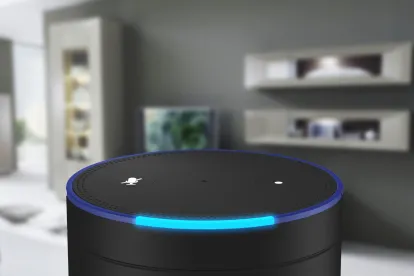In mass torts, trial teams deal with large amounts of medical records – it’s par for the course, but these days they are more likely dealing with some form of electronic health records (EHRs). EHRs are basically the medical data of a patient stored on computers, in portals and on extranet sites. According to Forbes, in 2020, the amount of healthcare data created globally was estimated at 2,314 exabytes (a single exabyte is equivalent to one billion gigabytes).
So how does one wade through the billions of bytes to get to the key pieces of information needed? Using the artificial intelligence of Natural Language Processing (NLP) – how the computer analyzes and processes the natural written and spoken language of humans.
Undoubtedly, you have been a victim of NLP on occasion. Your smartphone auto-corrected “Happy birthday dear Sheila” to “Happy birthday dead Sheila.” The Customer Service Chat–Bot you interact with repeats “I’m happy I have resolved your issue,” even though you keep typing “Let me speak to a human!” in the field. (You may want to read up on other tangential and often aggravating issues at Amazon Sidewalk Shares Your Home WiFi with the Neighbors, written by one of my colleagues.)
You likely have been the beneficiary of NLP as well. Ever written “Attached is a….” in an email and then forgotten to attach the attachment? NLP likely recognized that and reminded you. What about asking Siri to call your home phone for you? The vast majority of the time, Siri gets that one right.
When applying NLP to medical records, for example, an advanced NLP program will likely understand that COPD and obstructive lung disease are the same, and flag it, based on context and other textual clues. But what will it do with OSA? Is it obstructive sleep apnea or osteoarthritis? Good question….
Forbes notes that NLP has been around for decades, but the skyrocketing increase in healthcare data “has made it an increasingly valuable tool for interpreting and filtering all types of medical text to make the data more useful to clinicians, researchers, payers and other stakeholders.”
But what about litigators? Attorneys who comb through records looking for the needle in the haystack are unlikely to benefit from technologies focused on delivering clinical care or those assessing the efficacy of study medications. The brush will still be too broad. Many physicians continue to assert that it doesn’t matter what caused an illness, because once a patient has it, the focus then becomes eradicating it – so plowing through medical records, either by hand, electronically or through some other form of AI is unnecessary, once the illness or injury is identified.
The best use for trial teams may be within the healthcare billing records. If NLP could identify and group medical bills applicable to a certain claimed illness and exclude medical bills related to non-claim related healthcare issues, based on codes or other data, that could be a valuable tool for damages assessment.
In the meantime, be careful what you say around Siri and Alexa…




 />i
/>i
